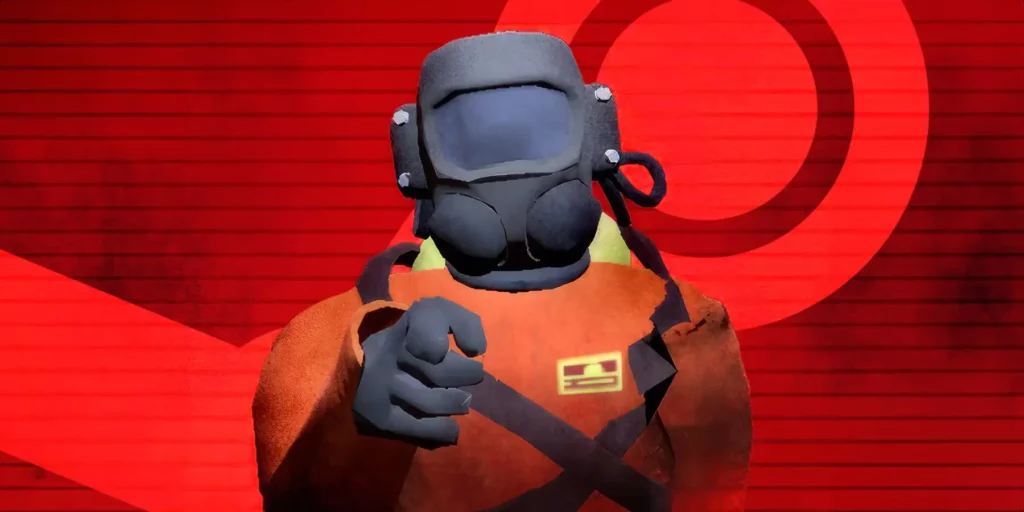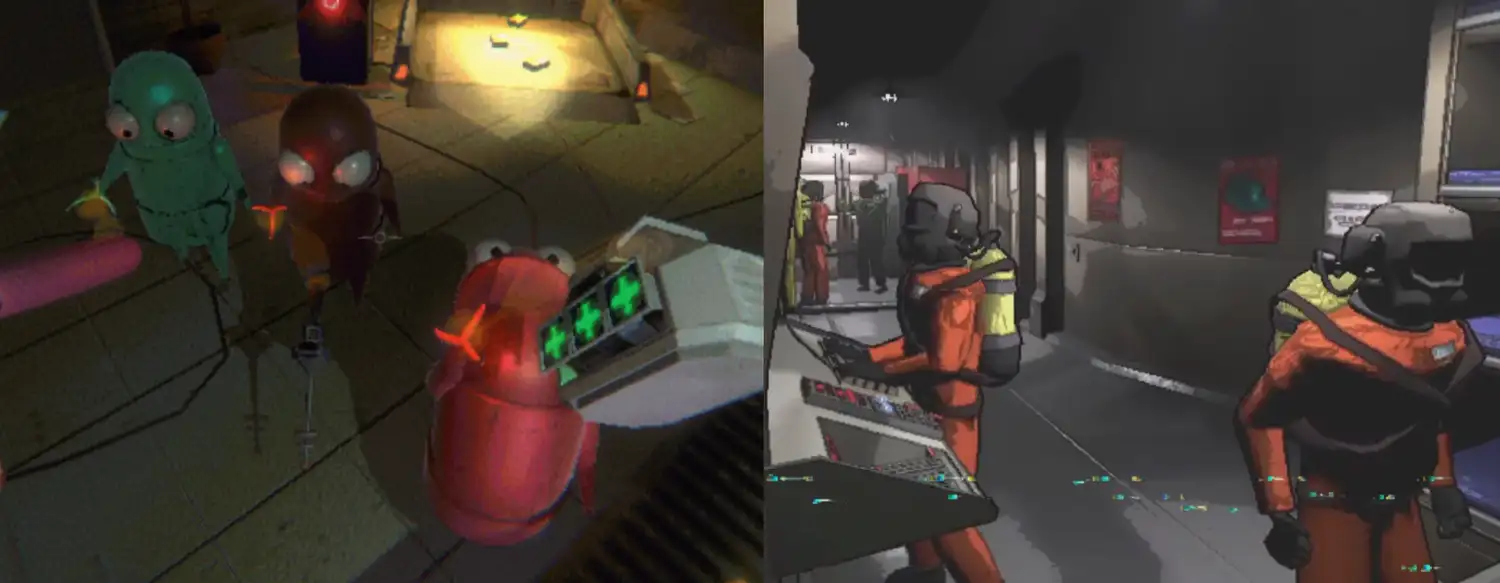Lethal Company is a famous horror game that built its reputation on pressure and mechanics. The game is at its best, grabbing players by the edge of the seat with darkness. Due to limited resources, choices have to be made; fear can intensify. Effective sound design—distant footsteps of a monster, or an unexpected scream. All of this aids in the creation of moments where players are truly terrified, such as when a bracken’s glowing eyes flicker off and on in the dark, making players panic.
The game’s monsters are designed to unnerve. You have to think on your feet when dealing with the different enemies like bracken or coil-head. The psychological trick by the mimic or the sound of wind-up in the toy box prolongs the suspenseful atmosphere. These merciless foes make mistakes costly and they raise the stakes so living feels like winning.

R.E.P.O.’s Lighter, Comedic Approach
R.E.P.O. is a release that is enjoyable, but not very scary. The bright environments and built in flashlights do not force resource management, which creates less vulnerability. Monsters often either do not look scary, like the weird robots or the “creepy doll lady”, or are introduced too abruptly, with no build-up. Because of their nature, they make engagements feel more mundane than suspenseful, as players can simply choose to hide or move slowly.
Loot mechanic of 3D game in which you can haul things like paintings and pianos around has a physics element that’s clever, although it’s a bit excessive. When you see your teammates trying to carry heavy stuff, it is funny at first. But, after a while, when it impacts the gameplay, it is not so funny. Although the voice work and expressive character models of R.E.P.O. are funny, they are not panic-inducing and thrilling like Lethal Company’s life-and-death scenarios.
Comparing Gameplay Dynamics
Lethal Company’s strength lies in its logistical depth. Devices like walkies, terminals and shovels help players plan teams but aren’t often used. Although the game doesn’t offer much incentive for players, the chase of high scores and involvement in unlocking tools to survive on tougher moons is rewarding. Though it may frustrate players looking for a multimedia experience, it draws folks who like it intense.
On the other hand, R.E.P.O. is easier to access. The straightforwardness of its mechanics – you just purchase items, avoid the monsters, and stack up loot – makes it simple to get into. Teammates can be revived, and there are no hard time limits, which means there isn’t any pressure on you or the other players. But this simplicity loses the strategic complexity that makes the game so interesting for hardcore fans.

The Streamer Perspective
Streamers like RDCWorld highlight the games’ differences. In Lethal Company, chaos breaks out during sessions when the game mimics an iconic moment. A scream echoes through the mic as we found out we weren’t dead; but the coil-head comes in and wipes the entire team. These back-to-back scenarios work well on streams, keeping people hooked. The interactions of R.E.P.O bring out funny moments like glancing at her teammate or messing up a lift but aren’t as stressful. Some think R.E.P.O. is refreshing, which is why they find it appealing. Others think this is a case of recency bias. They point out how Lethal Company has proven itself at giving fun moments and much more.
Room for Both in the Rotation
Instead of comparing R.E.P.O. and Lethal Company, these games offer unique experiences. R.E.P.O. is a lighthearted experience dripping with chaos that suits casual plays and goofy streams. Lethal Company is the opposite and offers a raw horror experience for people looking for a challenge. R.E.P.O. may get better with future updates, but it will probably never match the suspense of Lethal Company. For now, RPG fans should go find R.E.P.O. and enjoy it. Just don’t let it overshadow Lethal Company.
